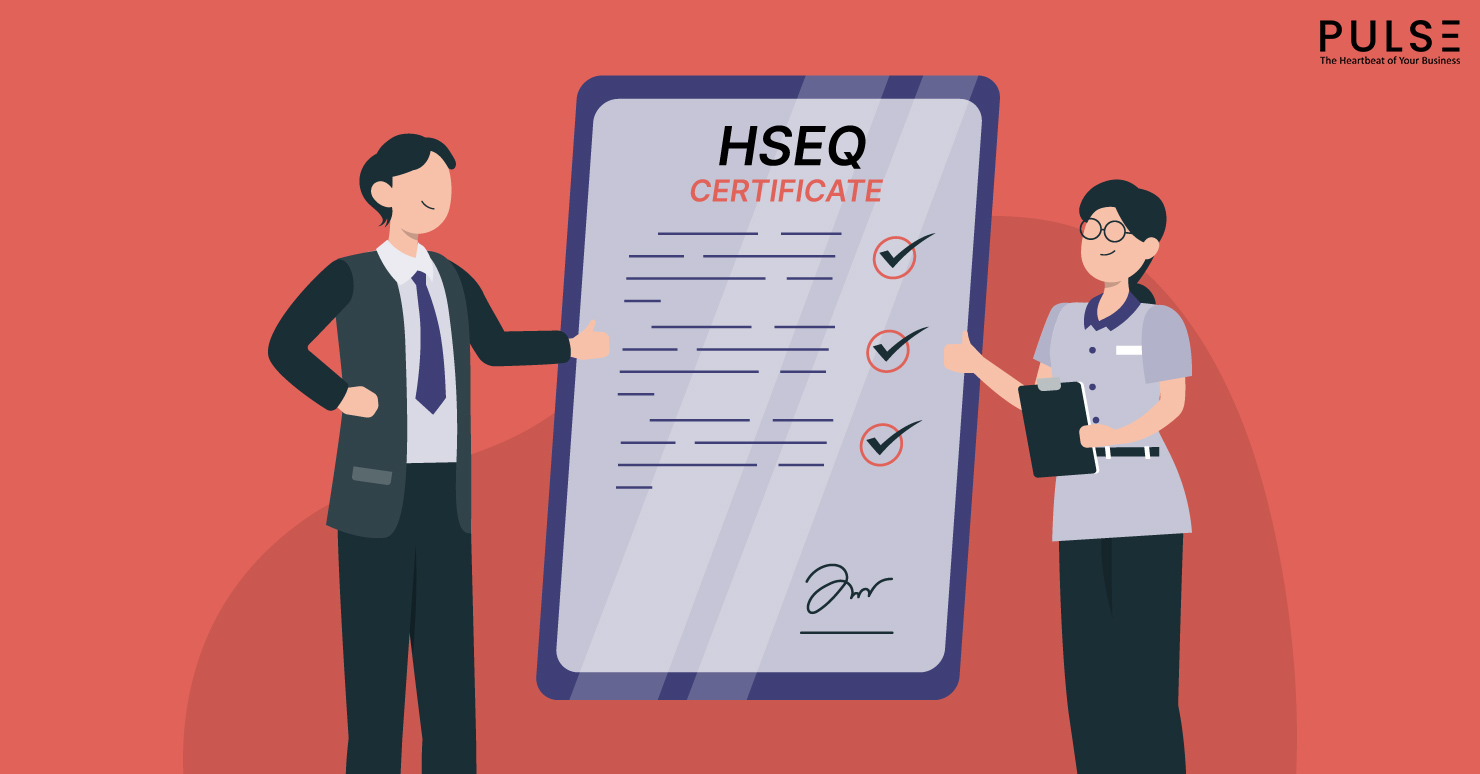As per the key findings from the Census of Fatal Occupational Injuries, a worker died every 111 minutes from a work-related injury in 2020 in the US.
In addition, an ILO report says that about 2.3 million people worldwide have work-related accidents every year. This means over 6000 people die every day as a result of this.
To avoid such alarming incidents, companies must have HSEQ policies in place. But what exactly is HSEQ, and what is HSEQ certification? Read on.
What is HSEQ?
HSEQ stands for health, safety, environment, and quality. Therefore, it is about the health, safety, environment, and quality management of an organization.
Under this protocol, business-critical risk areas are audited using a powerful and proven risk-based approach. To meet HSEQ objectives, communication is a crucial factor. It includes:
- Maintaining incident records
- Establishing policies and procedures in writing
- Keeping track of results
- Aiming for high quality by focusing on sustainability and safety
HSEQ training programs/HSEQ Certification address a wide range of workplace-related issues that affect workers’ health and well-being.
Workplace safety is a primary responsibility of the business. Therefore, HSEQ programs are specifically designed to prevent harm to people, the environment, and property.
Why is HSEQ Certification Needed?
HSE Certification is required in high-hazard mining, construction, and oil & gas industries. To protect the health and safety of employees and the environment, any organization must follow and adhere to the directives of the HSEQ management.
Health, safety, environment, and quality systems are aimed at helping sole contractors and businesses take responsibility for their businesses’ health, safety, environment, and quality requirements by providing an integrated and user-friendly management system.
By implementing health and safety management practices, HSEQ management minimizes the risk of unnecessary lawsuits, thus preventing illness and injury.
Health, safety, environmental, and quality management systems develop risk assessment procedures and identify health and safety incident reporting processes.
With HSEQ Certification, organizations can:
- Understand the main health and safety issues facing their business and continually develop their skills and knowledge.
- Establish standards, monitor performance, and implement internal controls by understanding health and safety policy.
- Develop a response strategy based on understanding the risks and opportunities associated with health and safety matters and market pressures that may compromise the values and standards.
- Create a culture of open communication and health and safety standards within and outside the organization.
- A proper internal control system should be in place to manage risk related to health and safety, and the audit committee should review the current internal control and audit structure.
How is HSEQ Certification Beneficial?
A framework for health, safety, environmental, and quality helps businesses in many ways. These include:
1. Maximize revenue
Health, safety, environment, and quality (HSEQ) practices suggest creating and following processes based upon industry best practices. As a result, employers can improve overall efficiency, lower costs, and increase revenue by following industry best practices.
2. Boost employee morale
Policies and protocols that promote a healthy and safe work environment will make employees feel more confident and motivated. When employees know they are working for a compliant employer, they will feel at ease and naturally be more productive.
3. Improve customer satisfaction
By incorporating quality control processes within the HSEQ framework, employers will reduce errors, which will enhance customer confidence in their ability to deliver high-quality goods and services consistently.
4. Reduce legal risks
Compliance with standards, laws, and regulations surrounding health, safety, environment, and quality will minimize the risk of litigation.
Avoiding expensive and tiring legal battles, heavy insurance premiums, other legal fees, fines, and compensation is what you can get with the HSEQ certification in place.
5. Boost brand image
With the HSEQ framework, companies can show their customers, suppliers, and employees how important it is to care for the welfare of their employees, the quality of their products, and the environment.
How to Implement an HSEQ Policy
Being proactive about the health and safety of employees is a sign of a great leader/employer. So, managing workplace safety must always be conscious and deliberate.
There are many ways to implement health and safety compliance and management at work. You can begin implementing HSEQ in your workplace by following these steps:
- Appoint a health and safety officer
- Establish a health and safety policy
- Training your employees about workplace safety
- Preventing foreseeable work hazards
- Providing the right workplace facilities
- Having first-aid arrangements in place
- Insure the business
In summary, these are the essential elements needed to adopt an HSEQ policy in a company, but what’s most essential is a solid commitment to workplace health and safety.
The benefits of HSE certification for any organization and workplace are evident. It is time to consider getting the HSE certification for workplaces or organizations!
When it comes to implementing industry-standard health protocols, auditing becomes critical to achieve the certification. This is where Pulse comes in handy. With a modern user interface, Pulse offers an agile auditing platform that makes any sort of compliance a breeze. Companies can prompt faster actions and enable company-wide issue resolution in real-time with the tool. Get in touch with us today!
